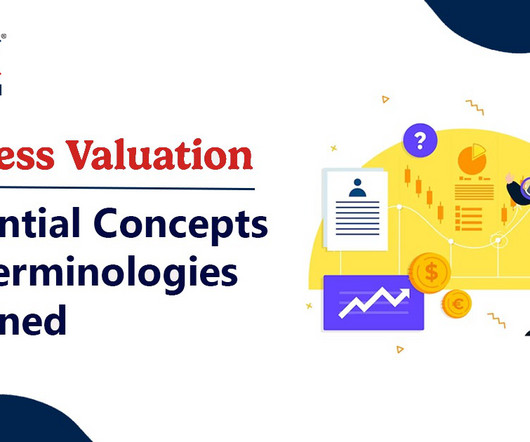Business Valuation 7: Essential Concepts and Terminologies Explained
RNC
JULY 13, 2023
Market Value: Market value is the estimated worth of a business based on the current market conditions. It represents the price at which a business would likely sell in an open and competitive market. It provides insights into the market perception of similar businesses and helps establish a fair valuation.



















Let's personalize your content